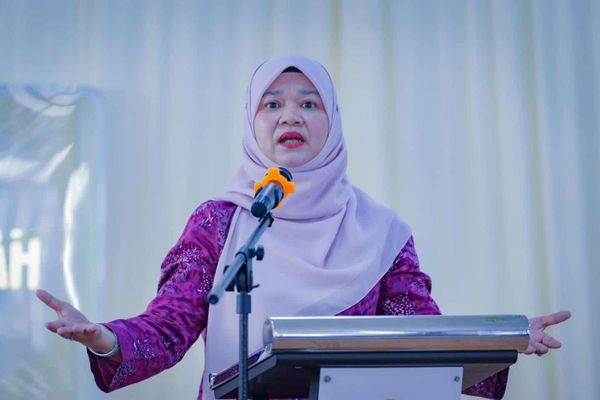GEORGE TOWN, April 21 — The Education Ministry (MOE) is retraining more than 100,000 teachers nationwide in digital pedagogy and 21st century teaching tools, in line with the Asean Work Plan on Education 2021-2025.
Education Minister Fadhlina Sidek said the initiative, which focuses on enhancing teachers’ professional development, is being carried out in collaboration with Google for Education, Unesco, and local universities.
“Malaysia recognises that the education sector must shift from passive knowledge transmission to active skills cultivation, creativity, critical thinking and lifelong learning. We are at a crossroads. The choice is between marginal adaptation and bold transformation. Malaysia chooses the latter.
“The Asean Work Plan on Education 2021-2025 lays out a robust framework for cooperation, and Malaysia is fully aligned with its vision,” she said in her speech at the “Empowering Education Summit 2025: Shaping Asean’s Future Through Skills and Innovation” event today.
Fadhlina said Malaysia is also strengthening collaboration between the Technical and Vocational Education and Training (TVET) sector and industry players through initiatives such as the National TVET Empowerment Agenda, which lets the public and private sectors jointly develop modular, industry-relevant training programmes.
For example, Fadhlina highlighted that in Johor and Penang, the electrical and electronics sector is collaborating with polytechnics and vocational colleges to co-design semiconductor-focused TVET pathways.
She also noted that selected pilot schools have begun using artificial intelligence-powered learning platforms to personalise student learning, identify early signs of dropout risk and provide tailored remediation.
Additionally, the MOE is expanding Science, Technology, Engineering and Mathematics (STEM) initiatives such as #MySTEMAmbassadors and STEM4ALL, aimed particularly at rural and underprivileged students.
In 2024 alone, more than 200,000 students took part in STEM boot camps and robotics competitions, but digital equity remains a challenge, she added.
To address this, Fadhlina said the ministry is deploying hybrid solar-powered classrooms and satellite internet to 180 schools in Sabah and Sarawak, to ensure innovation reaches all corners of the nation to narrow existing inequalities.
Fadhlina said that while Malaysia’s bilingual education system has long been established, the MOE is expanding elective language offerings to include Mandarin, Tamil, and Asean languages such as Thai, Khmer, and Vietnamese to promote deeper intra-Asean collaboration.
“Asean’s strength lies in its cultural, linguistic and traditional diversity. To harness this, we must prepare our youth to be multilingual, adaptable and culturally competent,” she said.
— Bernama


